- Home
- Madeleine L'engle
A Wind in the Door Page 11
A Wind in the Door Read online
Page 11
Mouse-creature's whiskers vibrated wildly. "Age is immaterial. In any case, it so happens that I was born only yesterday."
"Then what are you doing here?"
Mouse-creature drew itself up; now it reminded Meg not so much of a mouse as of a small shrimp with antennae waving wildly. "There's only one of us farandolae born every generation or so nowadays, and we start our schooling the moment we're born."
"You're a farandola!"
"Naturally. What did you expect me to be? What else could I possibly be? Everybody knows that the farandolae--"
She interrupted. "Everybody doesn't. The existence of farandolae wasn't even guessed at until a few years ago when we began to learn more about mitochondria, and my mother has just now isolated the effect of farandolae on mitochondria with her micro-sonarscope. And even with the micro-electron microscope, farandolae can just be proved to exist, they can't really be seen."
The mouse-creature's, the farandola's, whiskers twanged. "It's a very stupid breed of creature that doesn't know its own inhabitants. Especially if it's fortunate enough to be inhabited by farandolae. We are extremely important and getting more so."
Past the farandola, behind Proginoskes and Louise the Larger, the shape of a Mr. Jenkins blew rapidly across the horizon.
Mr. Jenkins, standing near Meg and Calvin, quivered.
Blajeny looked grim. "Echthroi at work."
The mouse-creature-farandola paid no attention. "My quercus, my tree, hasn't had an offspring for a hundred years--our years, of course. It will take me that long to become full-grown myself, and this is only my second phase."
Meg spoke in her most ungracious manner. "You're going to tell us about your first phase whether we want you to or not. So go ahead." The glimpse of Charles Wallace, followed by the sight of another Echthros-Mr. Jenkins, had forced her to realize that the successful passing of the first test did not mean that everything was going to be all right.
Mouse-shrimp-farandola reacted by an intensified trembling of feelers. "Yesterday morning I was still contained inside the single golden fruit hanging on my tree. At noon it burst and fell open, and there was I, newly hatched. In my tadpole stage I was delivered to Metron Ariston and transmogrified, and here am I. My name is Sporos, by the way, and I do not like your thinking names like mouse-creature and shrimp-thing at me. Sporos. When I have finished this phase of my education--if I finish--with one of you for a partner, I will root myself, and Deepen. After an aeon I'll send up a small green shoot out of my kelp bed, and start growing into an aqueous deciduous spore-reproducing fruit-bearing coniferous farandola."
Calvin looked horrified. "You're mad. I've studied biology. You're not possible."
"Neither are you," Sporos replied indignantly. "Nothing important is. Blajeny, is it my misfortune to be paired with one of these earthlings?"
Louise the Larger lifted her head out of her coils and looked at Sporos, her heavy lids met and closed.
Blajeny said, "You are hardly making yourself popular, Sporos."
"I'm not a mere earthling. Earthlings are important only because they are inhabited by farandolae. Popularity is immaterial to farandolae."
Blajeny turned away from Sporos in quiet rebuff. "Calvin. You and Sporos are to work together."
"Oh, well, you can't win them all," was more or less the effect of what Sporos was vibrating, and Meg thought it would have been a more appropriate response coming from Calvin.
Mr. Jenkins said, "Blajeny, if I may presume--"
"Yes?"
"That other--I did see another copy of myself just a few moments ago, did I not?"
"Yes. I am afraid you did."
"What does it mean?"
Blajeny said, "It means nothing good."
Proginoskes added, "You see, we aren't any place. We're in Metron Ariston. We're simply in an idea which Blajeny happens to be having in the middle of the Mondrion solar system in Veganuel galaxy. An Echthros-Mr. Jenkins oughtn't to be able to follow us here. It means--"
"What?" Meg demanded.
Like Blajeny, Proginoskes said, "Nothing good."
Sporos twingled his whiskers. "Need we stand around chittering? When are we going?"
"Very soon."
"Where?" Meg demanded. She felt prickles of foreboding.
"To a far place, Meg."
"But Mother and Father--Charles Wallace--the twins--we can't just go off this way with Charles Wallace so ill and--"
"That is why we are going, Meg," Blajeny said.
Sporos rippled his undulating notes, and Meg translated something like: "Can't you just call home, or just reach out and talk to each other when you want to?" and then a horrified, "Oh, my goodness, I don't see how anybody as ignorant as you three earthlings seem to be can possibly manage. Do you mean on your earth host you never communicate with each other and with other planets? You mean your planet revolves about all isolated in space? Aren't you terribly lonely? Isn't he?"
"He?"
"Or she. Your planet. Aren't you lonely?"
"Maybe we are, a little," Calvin conceded. "But it's a beautiful planet."
"That," Sporos said, "is as it may be. Since I was only born yesterday and came right into Metron Ariston and to Blajeny, I don't know the planets except the ones in the Mondrion solar system, and they talk back and forth all the time; they chatter too much, if you ask me."
"We didn't," Meg tried to interrupt, but Sporos twingled on.
"I do hope I wasn't born in some dreadful mitochondrion which lives in some horrible isolated human host on a lonely planet like yours. You are all from the same planet? I thought so. Oh dear, oh dear, I can see you aren't going to be the least help to me in passing any of the trials. I'd better see what time it is."
"How do you tell time?" Calvin asked curiously.
"By the leaves, of course. You mean to say you don't even know the time of day?"
"Of course I do. With my watch."
"What's a watch?"
Calvin extended his wrist. He was very proud of his watch, which had been a prize at school, and gave the date as well as the hour, had a sweep hand, and was a stop watch as well.
"What a peculiar object." Sporos regarded it with a certain contempt. "Does it work just for your time, or for time in general?"
"Just for our time, I guess."
"You mean, if you want to know what time it is anywhere here in Blajeny's galaxy, or in a distant mitochondrion, your watch thing won't tell you?"
"Well--no. It just tells the time for whatever time zone I'm in."
"Mighty Yadah! How confused everything must be on your planet. I only hope my human host isn't in your planet."
Mr. Jenkins said plaintively, "If someone would just explain to me what is going on--"
"Mr. Jenkins," Meg said. "You know what the Echthroi are--"
"But I don't. I only know that they impersonated me."
Blajeny placed both great hands on Mr. Jenkins's stooped shoulders and looked down at him gravely. "There are evil forces at work in the world."
Mr. Jenkins nodded mutely. He did not dispute that.
"They are throughout the universe."
Mr. Jenkins glanced at the cherubim, who had stretched out his wings to their fullest span as though to flex his muscles. "How--how big are they?"
"They are no size and they are every size. An Echthros can be as large as a galaxy and as small as a farandola. Or, as you have seen, a replica of yourself. They are the powers of nothingness, those who would un-Name. Their aim is total X--to extinguish all creation."
"What do they have to do with Charles Wallace?"
"The Echthroi are trying to destroy his mitochondria."
"But why would they bother with a child?"
"It is not always on the great or the important that the balance of the universe depends."
Louise the Larger whistled urgently, and Meg was almost sure that the snake was telling them that she would stay with Charles Wallace, that she would encourage him to keep on fight
ing to live. "Oh, Louise, please, please, you won't leave him? You will help him?"
"I will not leave him."
"Will he be all right?"
Louise answered with silence.
Blajeny said to Mr. Jenkins, "Charles Wallace will die if his mitochondria die. Do you understand that?"
Mr. Jenkins shook his head. "I thought he was making things up with his big words. I thought he was trying to show off. I didn't know there really were mitochondria."
Blajeny turned to Meg. "Explain."
"I'll try. But I'm not sure I really understand either, Mr. Jenkins. But I do know that we need energy to live. Okay?"
"Thus far."
She felt Blajeny kything information to her, and involuntarily her mind sorted it, simplified, put it into words which she hoped Mr. Jenkins would understand. "Well, each of our mitochondria has its own built-in system to limit the rate at which it burns fuel, okay, Mr. Jenkins?"
"Pray continue, Margaret."
"If the number of farandolae in any mitochondrion drops below a critical point, then hydrogen transport can't occur; there isn't enough fuel, and the result is death through energy lack." She felt the skin on her arms and legs prickling coldly. To put into words what might be happening within Charles Wallace was almost unendurable.
She felt Blajeny prodding her and continued. "Something's happening in Charles Wallace's mitochondria. I'm not sure what it is, because it's all words I don't know, but his farandolae are dying--maybe they're killing each other--no, that's not right. It sounds to me as though they're refusing to sing, and that doesn't make any sense. The point is that they're dying and so his mitochondria can't produce enough oxygen." She broke off, angrily. "Blajeny! This is all nonsense! How can we possibly stop them from doing whatever it is they're doing, when they're so small they aren't even visible? You've got to tell us! How can we help Charles?"
Blajeny's kything was calm and cold as steel. "You will know soon."
"Know what?"
"What you must do to overcome the Echthroi. When you get there, my children, you will know."
"When we get where?"
"To one of Charles Wallace's mitochondria."
EIGHT
Journey into the Interior
Now that Blajeny had said it, it seemed to Meg the only logical, the only possible course of action. If they were to save Charles Wallace, if farandolae were causing his illness, if the Echthroi were at work within him as well as without, then the only hope was for them to become small enough to go into one of his mitochondria and see what was happening with the farandolae.
"Metron Ariston--" Calvin spoke softly. "Size. Where sizes don't matter. But--to be as small as a galaxy is huge: can you make us that small?"
Blajeny smiled. "Size is really quite relative."
"Anyhow"--Meg looked at Sporos--"we're already talking with a farandola." If she had tried to imagine a farandola, it would not have looked like Sporos.
Mr. Jenkins rose stiffly and moved with his peculiar stork-like gait to Blajeny. "I don't know why I thought I might be of help. This is all over my head. I will only be a hindrance to the children. You had better send me back to my school. At least there are no surprises for me there."
"What about this morning?" Blajeny asked. "That was not a surprise for you? I cannot tell you why you have been sent to us, Mr. Jenkins, because I myself do not yet know. But Meg Named you--"
"The full implications of this are not yet clear to me."
"It means that you are part of whatever is going to happen."
Mr. Jenkins moaned.
Blajeny stretched out his arms, embracing them all in the gesture. "The mitochondrion to which I am sending you is known as Yadah. It is Sporos's birthplace."
Sporos danced around, twingling in outrage.
Meg shouted at him, "If you are in Charles Wallace, if he's your galaxy, you couldn't be in a more special place!"
Louise sent her sibilant song towards Meg. All anger vanished when Meg caught, from Louise's song, another projection of Charles, huddled under the blankets. His mother lifted him to prop him up on pillows to ease his labored breathing, then pulled down the blankets so that Dr. Louise could listen to his heart with her stethoscope. She looked up gravely and Meg understood that she was suggesting that perhaps they had better call Brookhaven.
"Oxygen, then!" Meg cried out to Louise the Larger and Blajeny. "Wouldn't oxygen help Charles?"
"For a while. Dr. Colubra will see to that when the time comes."
Tears rushed to Meg's eyes. "Oh, Louise, take care of him. Don't let him stop fighting."
Mr. Jenkins asked, "Would anybody in his right mind let a snake near a sick child?"
"Dr. Louise will," Meg said, "I'm sure she will, from something she said in mother's lab the other night. Blajeny! Is Dr. Louise a Teacher, too?"
Blajeny nodded.
Meg's heart gave a leap of hope.
"Snakes," Mr. Jenkins murmured. "Mitochondria. Echthroi."
Meg swallowed a hiccupy sob, took off her glasses and wiped the tear-smeared lenses.
Mr. Jenkins looked at her and spoke in his most stilted, academic voice. "Man. The mean point in the universe. And Charles Wallace--is that it? At this moment in time Charles Wallace is the point of equilibrium?"
Blajeny nodded gravely.
"So what happens with his mitochondria and farandolae--?" He looked to Meg for explanation.
She tried to pull herself together. "Remember, Mr. Jenkins, you're great on Benjamin Franklin's saying, 'We must all hang together, or assuredly we will all hang separately.' That's how it is with human beings and mitochondria and farandolae--and our planet, too, I guess, and the solar system. We have to live together in--in harmony, or we won't live at all. So if something is wrong with Charles Wallace's mitochondria--" Her voice trailed off.
Mr. Jenkins shook his head. "What can we do? What can we possibly hope to do?" Then he cried out in horror. "Oh, no!"
The pseudo-Mr. Jenkins they had seen before was moving rapidly towards them. Louise reared her black coils upwards with a horrible hissing.
"Quickly!" Blajeny spread his arms wide, pulling Mr. Jenkins, Sporos, and Calvin into their span. Proginoskes caught Meg within the strength of his wings, the beat of his heart. She seemed to become part of the cherubim's heartbeat.
The oval pupil dilated, and she went through to--
She could not tell where they were; she could only sense the presence of the others. As through a vast, echoing tunnel she heard Blajeny: "I would show you something to encourage you before you go."
Meg looked about. Ahead of her was a tremendous rhythmic swirl of wind and flame, but it was wind and flame quite different from the cherubim's; this was a dance, a dance ordered and graceful, and yet giving an impression of complete and utter freedom, of ineffable joy. As the dance progressed, the movement accelerated, and the pattern became clearer, closer, wind and fire moving together, and there was joy, and song, melody soaring, gathering together as wind and fire united.
And then wind, flame, dance, song, cohered in a great swirling, leaping, dancing, single sphere.
Meg heard Mr. Jenkins's incredulous, "What was that?"
Blajeny replied, "The birth of a star."
Mr. Jenkins protested, "But it's so small I could hold it in the palm of my hand." And then an indignant snort, "How big am I?"
"You must stop thinking about size, you know. It is both relative and irrelevant."
At this point Meg could not be bothered with size. She wanted to know something else. "Progo, will the star be Named?"
"He calls them all by name," the cherubim said.
Meg looked in wonder at the star. It was indeed so small that she could have reached out and caught it in her hand, but its flaming was so intense that the song itself came out of the fire and was part of the burning. She thought in wonder,--I must be the size of a galaxy.
And then all thoughts dissolved in the glory of the melody and the dance.
Blajeny's voice came like thunder, "Now!"
She was pulled into Proginoskes again, into the beat of the great heart, into the darkness of the eye, into the--
No!
She was being consumed by flame. She sensed a violent jolt to the cosmic rhythm, a distortion of wild disharmony--
She tried to scream, but no sound came. She felt pain so intense that she could not bear it another second; another second and the pain would annihilate her entirely.
Then the pain was gone, and she felt once again the rhythm of the cherubic heart, very rapid, faintly irregular. "Did it have to hurt that much?" Shock and pain made her loud and angry. Her limbs trembled weakly.
Proginoskes seemed to be having trouble; his heart continued to race unevenly. She thought she understood him to say, "We had a brush with an Echthros."
Her own breathing was a shallow panting. She felt that she was all there, all her atoms reassembled, that she was Meg; and yet when she opened her eyes she could see nothing but a strange, deep green-blackness. She listened, listened, and through what seemed at first to be a sound somewhat like the shrilling of insects on a summer night, she thought she could hear--or perhaps it was feel--a steady, regular pulsing.
"Progo, where are we?"
"Yadah."
"You mean we are in Charles Wallace? In one of his mitochondria?"
"Yes."
It was not conceivable. "What's that sort of thrumming I feel? Is it Charles Wallace's heartbeat?"
Proginoskes moved in negation in her mind. "It's the rhythm of Yadah."
"It feels like a heartbeat."
"Megling, we're not in earth time now; we're within Yadah. In farandolae time, Charles Wallace's heart beats something like once a decade."
She shivered. Her arms and legs still felt trembly and useless. She blinked, trying to adjust her eyes to the darkness. "Progo, I can't see."
"Nobody in the interior can see, Meg. Eyes aren't needed."
Her heart beat in frightened counterpoint to the rhythm of the mitochondrion. She could not pay proper attention as Proginoskes said, "It's what might be called a circadian rhythm. All life needs rhythm to--"
She interrupted. "Progo! Blajeny! I can't move!"
She felt Proginoskes within her thoughts. His own thinking had calmed considerably; he was recovering from whatever it was that had frightened him and caused her so much pain. "Blajeny did not come with us."
"Why?"
"This is no time for silly questions."

 Love Letters
Love Letters The Summer of the Great-Grandmother
The Summer of the Great-Grandmother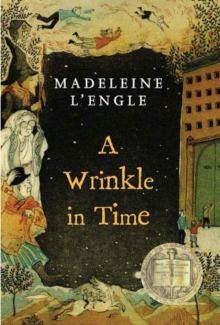 A Wrinkle in Time
A Wrinkle in Time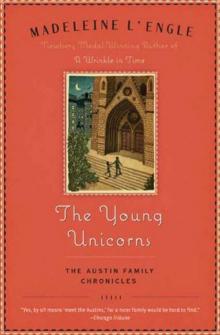 The Young Unicorns
The Young Unicorns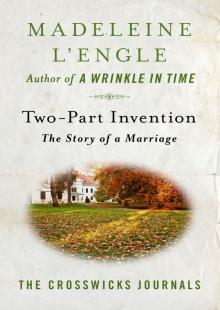 Two-Part Invention: The Story of a Marriage
Two-Part Invention: The Story of a Marriage The Other Side of the Sun
The Other Side of the Sun A House Like a Lotus
A House Like a Lotus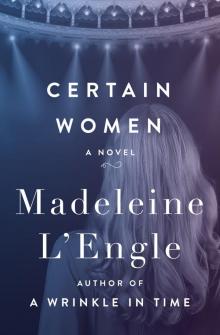 Certain Women
Certain Women Many Waters
Many Waters Camilla
Camilla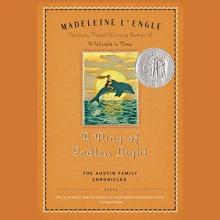 A Ring of Endless Light
A Ring of Endless Light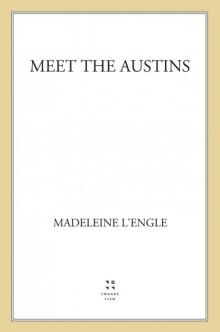 Meet the Austins
Meet the Austins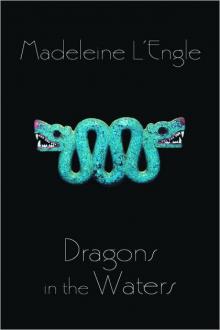 Dragons in the Waters
Dragons in the Waters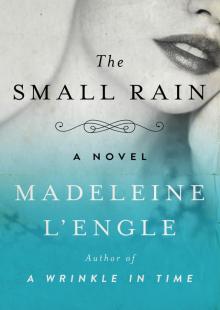 The Small Rain
The Small Rain The Moment of Tenderness
The Moment of Tenderness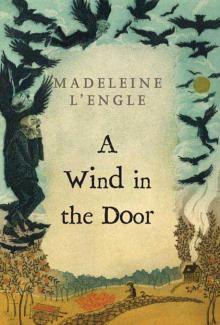 A Wind in the Door
A Wind in the Door Miracle on 10th Street
Miracle on 10th Street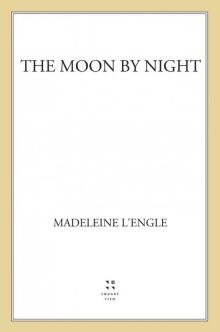 The Moon by Night
The Moon by Night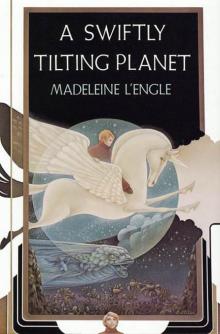 A Swiftly Tilting Planet
A Swiftly Tilting Planet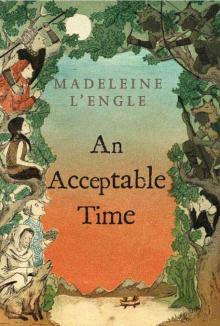 An Acceptable Time
An Acceptable Time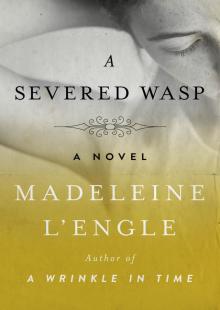 A Severed Wasp
A Severed Wasp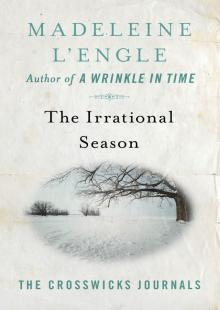 The Irrational Season
The Irrational Season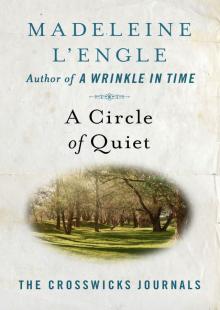 A Circle of Quiet
A Circle of Quiet A Live Coal in the Sea
A Live Coal in the Sea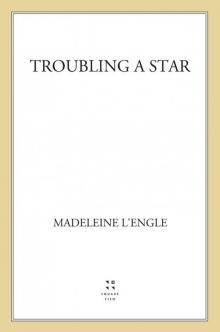 Troubling a Star
Troubling a Star Walking on Water: Reflections on Faith and Art
Walking on Water: Reflections on Faith and Art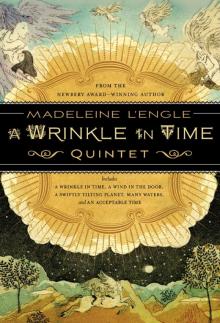 A Wrinkle in Time Quintet
A Wrinkle in Time Quintet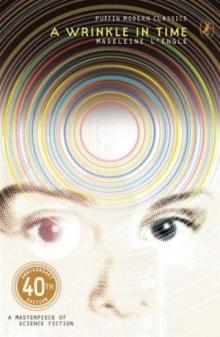 Wrinkle in Time
Wrinkle in Time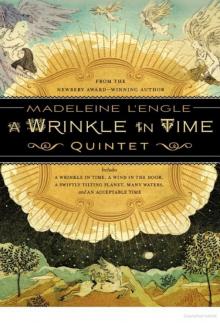 The Wrinkle in Time Quintet
The Wrinkle in Time Quintet Intergalactic P.S. 3
Intergalactic P.S. 3 Walking on Water
Walking on Water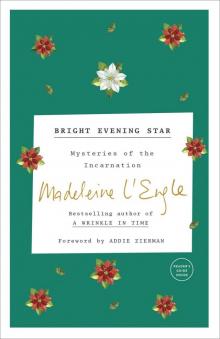 Bright Evening Star
Bright Evening Star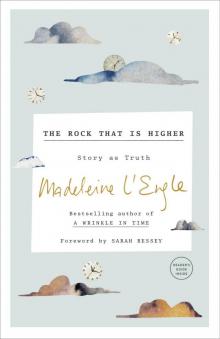 The Rock That Is Higher
The Rock That Is Higher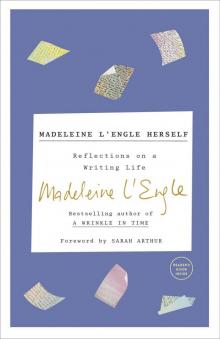 Madeleine L'Engle Herself
Madeleine L'Engle Herself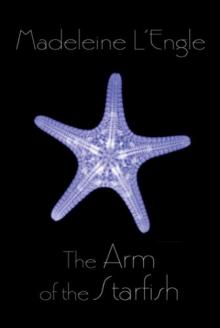 The Arm of the Starfish
The Arm of the Starfish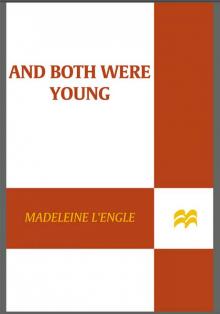 And Both Were Young
And Both Were Young The Twenty-four Days Before Christmas
The Twenty-four Days Before Christmas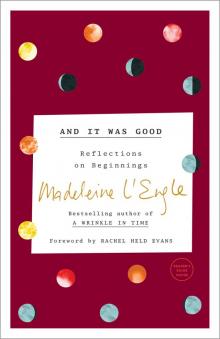 And It Was Good
And It Was Good A Stone for a Pillow
A Stone for a Pillow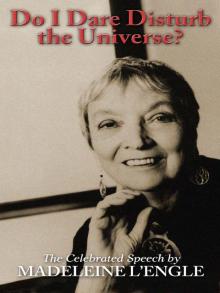 Do I Dare Disturb the Universe?
Do I Dare Disturb the Universe?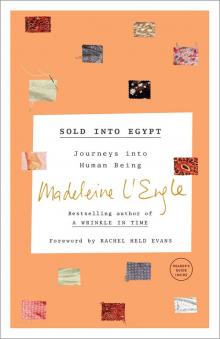 Sold into Egypt
Sold into Egypt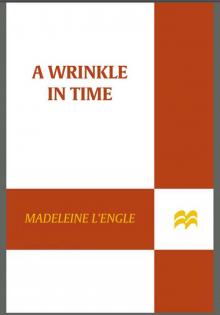 A Wrinkle in Time (Madeleine L'Engle's Time Quintet)
A Wrinkle in Time (Madeleine L'Engle's Time Quintet)